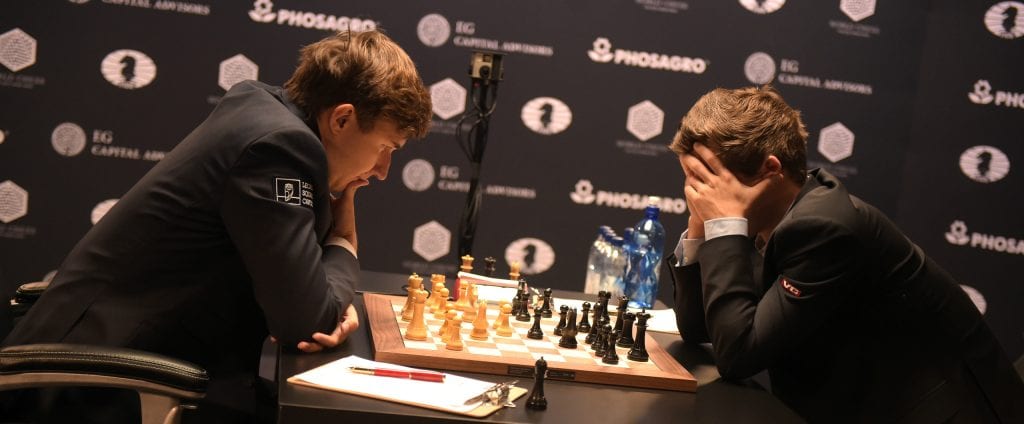Chess. It may not be the greatest of visual spectacles, but it can be deeply engaging and absorbing wondering what is going through a player’s mind.
It’s a quiet, intense battle of minds which is in stark contrast the usual world of sport which is about being the quickest, the strongest and the most accurate. Not with Chess. It’s all about strategy, about moving and counter moving and trying to outthink your opponent.
Sometimes that opponent may be a computer like Deep Blue which is the computer designed by IBM that famously went out beat reigning World Champion Garry Kasparov who wasn’t particularly happy about it all. The Russian was visibly and mentally stressed in both of his meetings with the supercomputer. Anyway, back to the board game sport that is Chess and the betting opportunities which can arise from it.
Order and Structure
There is order and structure in Chess as there is in any sport. The sport even has its own Olympiad which is held every two years (nothing to do with the actual Olympics) and there is the World Championships for men and women as well. The FIDE Chess Grand Prix produces regular matches and there is also a World Cup. The pinnacle of the sport is becoming a Grandmaster which requires strongest conditions to be met before having the title bestowed upon a player.
So there is actually quite a lot of betting opportunities that are presented in Chess. You may have to go and look around for the right bookmaker that will carry more of the Chess markets that you are looking for. Commonly you may find bookmakers have limited markets only focusing on the outright winner of a given event, such as the Chess World Cup. But others can allow you to expand.
Expand your mind
How to bet on Chess intelligently is a pretty fitting notion to think about given this mentally tough and challenging game. There’s nothing wrong on betting on those outright markets if you find the right price for your selection against value. But there a far more detailed betting options to wrap your mind around. For example, you may find a Number of Moves market where you can guess the number of moves before a given event in a match happens (say the capture of a piece).
Moves betting in chess is pretty big and popular and these are market options where you decide how many moves a game will be decided in and these options are presented in over/under format, say for example over 45.5 moves. The average number of moves in a Chess game is said to be 30 while it’s rare that one goes over 60 moves.
There is also betting opportunities to be taken on the pieces in a game. Yes, Chess betting can get that detailed. You can back for example, a pawn to be the first piece to be taken in each of the first four games of a match, or whether or not a pawn will be turned in a queen over a set amount of games, and even down to how many pawns (or just pieces in total) would be left standing on the board at the end of a game.
Break it down
But breaking down how to bet on Chess intelligently is probably worth steering away from those very niche type of markets where more randomness can cut value. Really do you have a way to predict how many pawns will be left? Is it easier to just pick the winner of that game for a 50/50 shot as opposed to a 1/16 shot (a chess game starts with 16 pawns)?
It may be worth instead looking at the major markets such a match winner and the winning margin of a player in a game.
Other ways to try and gauge your options is by looking at the ELO ratings in the game which is a ranking system based on the relative skill levels of players. For those bigger fans of the sport, subjective options can also come from looking at things like opening moves and the defence of opening moves of the players involved.















